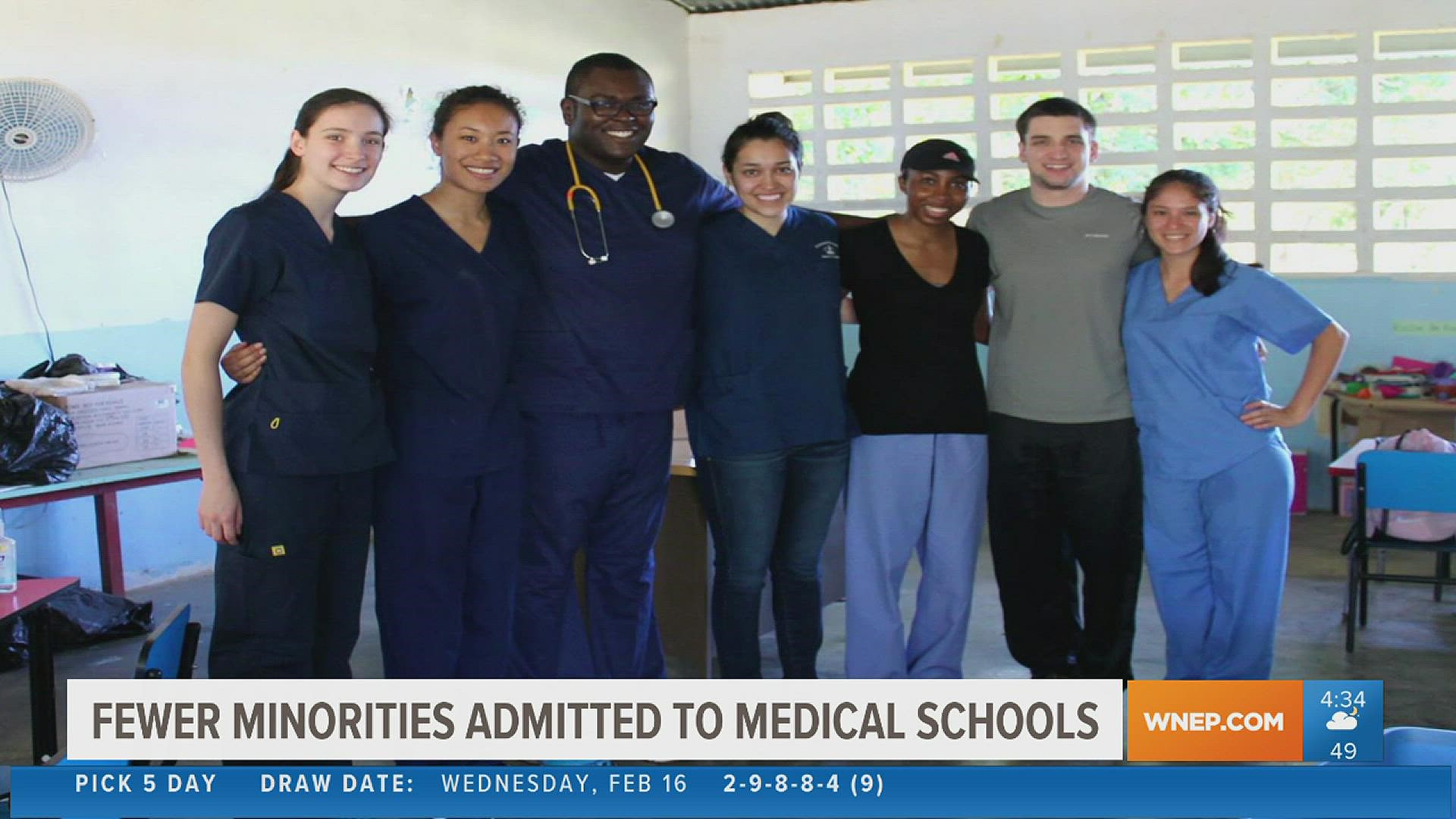SCRANTON, Pa. — Our spotlight on Black History Month continues. This year's theme is health and wellness.
Earlier this month, we told you about Scranton's first black doctor, James Foster.
Thursday morning, we take a look at the push to get more minorities, black men in particular, into medicine.
Newswatch 16's Lisa Washington shows us the effort to increase diversity at our area's only medical school.
Eshiemomoh Osilama is a second-year medical student at Geisinger Commonwealth School of Medicine in Scranton.
Though he's not yet decided which area of medicine he'd like to specialize in, becoming a doctor was a lifelong dream.
He said, "My dad was a family physician back in Nigeria, and although he wasn't able to practice here in the states, having that influence over my life very much instilled in me the interest in medicine."
Osilama, who grew up near Boston, admits there were some bumps in his journey to medical school.
"Trying to engage in community service activities and not having the resources to support me, not having the mentors, reaching out to people to mentor me, and being rejected by people," added Osilama.
He's not only a medical student. Osilama is president of Geisinger's Medical Student Council and one of the few black men in medical schools across the country.
A report last year from the association of American Medical Colleges shows the number of minorities accepted into medical schools across the United States. The number of black men, in particular, hasn't changed much in 40 years.
"It's unfortunate. Because we're obviously here, we're capable, we're competent. Those numbers are reflected in the way we receive health from doctors, from physicians," said Osilama.
"When you think about increasing underrepresented faculty and students within the school of medicine, at the end of that process, you want to see a decrease in health inequities," said Dr. Lauri Andress.
Dr. Andress was hired late last year as associate dean at Geisinger Commonwealth School of Medicine. She's responsible for increasing the number of minority students and faculty at the school.
The registrar reports about 15 percent of Geisinger's medical students are from underrepresented groups.
"Just as the process to solve health inequities is complicated, what happens in order to increase representation of minority students in the medical school system is equally complicated," said Dr. Andress.
Producing more black doctors means they have to apply and be accepted into medical schools.
Although there was a 20 percent increase in minority medical students admitted to schools in 2021, that's just one year.
"When we had the race riots, George Floyd, and the pandemic over the last two years, there was a bump in the admissions of minority students getting into medical schools. But is that what's required for us to admit more minorities into medical schools? If so, that's too much fluctuation in our societal relationships," said Dr. Andress.
Dr. Andress and Osilama believe the medical school admissions process needs to be examined.
"What I'm seeing is that across the United States, programs and students are working really hard to prepare themselves to get into medical school, and if you're knocking on the door, is the medical school doing everything it can to be attractive, to admit you and to make it a safe and supportive space once you get into the school," said Dr. Andress.
One of Geisinger's best practices is its REACH-HEI program which provides mentoring for first-generation and low-income students to help them succeed in health professions. Newswatch 16 highlighted the program in 2017.
Osilama and Dr. Andress agree the process starts when kids are in high school, sometimes younger, and representation matters.
"Being a black doctor inspires others to become doctors. A lot of my friends in school have friends who are doctors, and they have that influence over their life," said Osilama. "Hopefully, by me existing in this space, as a black man, being who I am, I can inspire others other children, my nieces and nephews, my kids in the future."
It's another positive step toward continuing a legacy of black excellence.

